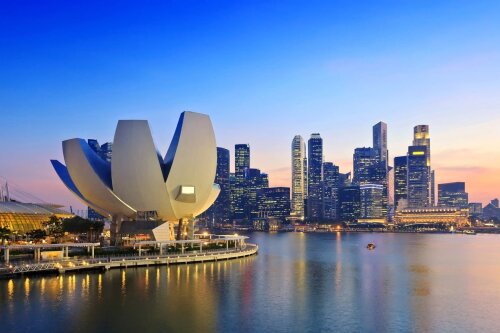Best International Trade Law Lawyers in Singapore
Share your needs with us, get contacted by law firms.
Free. Takes 2 min.
Or refine your search by selecting a city:
List of the best lawyers in Singapore
About International Trade Law in Singapore
International Trade Law in Singapore encompasses a sophisticated body of regulations governing the exchange of goods and services across international borders. Singapore, being a prominent global trade hub, has established itself as a key player in formulating robust trade policies that facilitate efficient trading. The country is a signatory to numerous bi-lateral and multilateral trade agreements, including those under the auspices of the World Trade Organization (WTO) which influence domestic regulations. These laws aim to ensure compliance with international standards, promote fair trade, and foster economic growth.
Why You May Need a Lawyer
Engaging in international trade can be complex due to varying regulations in different jurisdictions. Identifying situations where you might need a lawyer's expertise is crucial:
- Navigating complex trade agreements and compliance with local and international regulations.
- Resolving disputes deriving from international contracts or unfair trade practices.
- Drafting and reviewing contracts that involve cross-border transactions and addressing unique risks.
- Advising on import and export rights, tariffs, or sanctions that may affect trading activities.
Local Laws Overview
Key aspects of local laws impacting International Trade Law in Singapore include:
- Sale of Goods Act: Governs the sale and purchase of goods within Singapore, aligning with international standards to ensure fair trade practices.
- Customs Act: Provides regulations for the import and export of goods, including tariffs, duties, and the prohibition of certain items.
- Free Trade Agreements (FTAs): Singapore is a member of numerous FTAs, facilitating reduced or zero tariffs on qualified goods, enhancing market access.
- Intellectual Property Law: Protects the rights of parties in cross-border trade, ensuring that their inventions, trademarks, and copyrights are respected.
Frequently Asked Questions
What is International Trade Law?
It is a set of rules and norms governing trade operations and transactions between businesses and countries at an international level.
Why is Singapore significant in international trade?
Singapore's strategic geographical location, pro-business policies, extensive network of FTAs, and a robust legal framework contribute to its significance.
Do I need a lawyer for trade contracts?
Yes, to ensure conformity with legal requirements, protect your interests, and mitigate risks associated with cross-border transactions.
How do tariffs affect international trade in Singapore?
Tariffs impact the cost of goods, influencing trade terms and competitiveness. Singapore’s numerous FTAs aim to reduce such barriers.
What are the risks of not complying with international trade laws?
Non-compliance can lead to legal disputes, financial penalties, reputational damage, and potential loss of market access.
How do I resolve a dispute under International Trade Law?
Dispute resolution might involve negotiation, mediation, arbitration, or litigation, depending on circumstances and business agreements.
What is the role of WTO in Singapore's trade laws?
Singapore, as a WTO member, aligns its trade practices with international standards facilitating transparency and non-discrimination.
How do I secure my intellectual property internationally?
Engage in registration with the appropriate international IP bodies and incorporate protective clauses in trade contracts.
Are there specific sanctions I should be aware of for trade with certain countries?
Yes, Singapore adheres to international sanctions and you must stay informed about restrictions regarding certain jurisdictions.
What documents are required for importing goods into Singapore?
Typically, import permits, invoices, shipping documents, and certifications may be required depending on the goods involved.
Additional Resources
The following resources can provide additional insights and assistance:
- Singapore Customs: Offers comprehensive guidance on import/export regulations.
- International Enterprise Singapore: Supports businesses in expanding operations globally.
- World Trade Organization (WTO): Provides a framework for international trade negotiations and disputes.
- Intellectual Property Office of Singapore (IPOS): Advises on IP rights at the international and national levels.
Next Steps
If you require legal assistance in International Trade Law in Singapore, consider the following steps:
- Consult a specialized lawyer: Engage an international trade lawyer to evaluate specific legal needs and provide tailored advice.
- Conduct Due Diligence: Understand the comprehensive legal landscape of trading in Singapore and any countries involved.
- Documentation: Gather all necessary documents, including contracts, permits, and compliance certificates, before seeking legal guidance.
- Continual Education: Stay updated with changes in international trade regulations and policies that may affect your business.
Lawzana helps you find the best lawyers and law firms in Singapore through a curated and pre-screened list of qualified legal professionals. Our platform offers rankings and detailed profiles of attorneys and law firms, allowing you to compare based on practice areas, including International Trade Law, experience, and client feedback.
Each profile includes a description of the firm's areas of practice, client reviews, team members and partners, year of establishment, spoken languages, office locations, contact information, social media presence, and any published articles or resources. Most firms on our platform speak English and are experienced in both local and international legal matters.
Get a quote from top-rated law firms in Singapore — quickly, securely, and without unnecessary hassle.
Disclaimer:
The information provided on this page is for general informational purposes only and does not constitute legal advice. While we strive to ensure the accuracy and relevance of the content, legal information may change over time, and interpretations of the law can vary. You should always consult with a qualified legal professional for advice specific to your situation.
We disclaim all liability for actions taken or not taken based on the content of this page. If you believe any information is incorrect or outdated, please contact us, and we will review and update it where appropriate.
Browse international trade law law firms by city in Singapore
Refine your search by selecting a city.
















